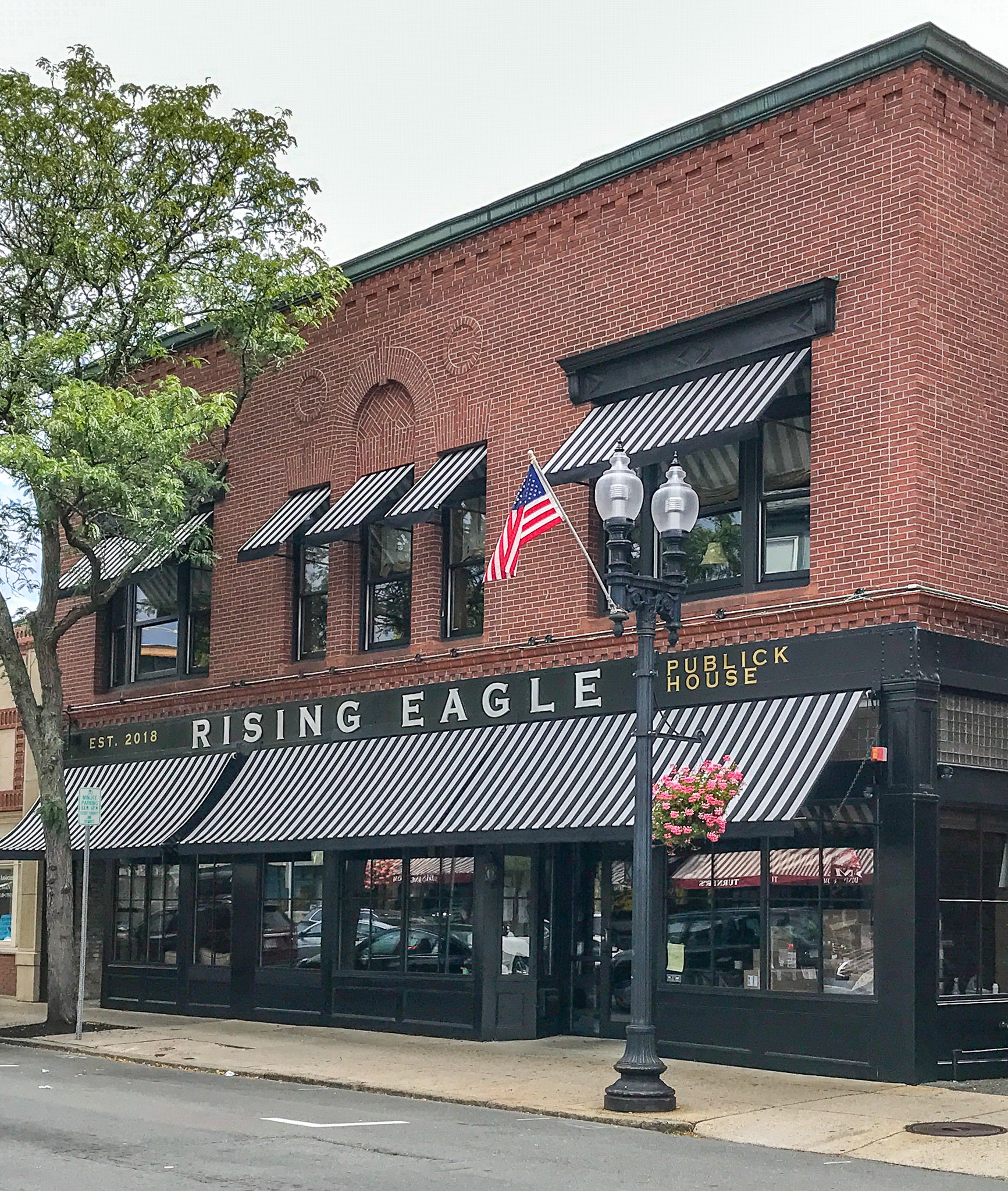In the heart of downtown, Melrose.
Step back in time to this legendary gathering place, renowned for its irrepressible support for American independence. Imagine John and Abigail Adams seated at their preferred cozy corner table. Remember this is your home away from home where you control your dining experience. Seat yourself, perhaps in front of the wood-burning fireplace, in view of the bustling open kitchen, or maybe just grab a few seats at the historic bar. Like a traditional English pub, you order at your pace at the front host stand or, if you choose, via your phone using the QR code. Make yourself comfortable, our engaging staff is here to deliver you extraordinary tavern faire and hospitality in this authentic early American setting.*
April 18, 1775
10 p.m.
Once the second lantern glimmered, the assembled group of patriot spies began readying themselves for the long and treacherous rides that awaited them. Their first order though was to hold still and see if their leader would be joining them.
After sending his associate, Robert Newman, to the belfry of Old North Church, Paul Revere hurried to the spot along the Charles River where he had hidden his rowboat. In the likely event that he was captured, his fellow Sons of Liberty were to sound the alarm without him. Amazingly, Revere crossed over to Charlestown undetected and confirmed what had been dreaded; British troops were ferrying out of Boston and marching to Lexington and Concord. Revere chose the most direct route to Lexington, desperate to forewarn his friends Samuel Adams and John Hancock. The remaining horsemen were to stick to the original plan and alert the remainder of Middlesex County and beyond. One nameless rider headed due north, his first stop, a legendary gathering place in Malden, a spot renowned for its unyielding support for independence, the Rising Eagle Tavern.
Upon hearing the alarm, "the regulars are out," the entire town sprang into action. Bells were rung, torches were lit, and the townsfolk began streaming to the "Eagle." Within hours, the Malden Minutemen, under the command of Captain Benjamin Blaney and marching to the beat of Winslow Sargeant's drum, departed to fight valiantly in a battle that would forever change the world.
13 Months Later:
America's First Vote
In May of 1776, John Adams, attending the 2nd Continental Congress, realized he was getting close. Adams was the driving force behind the vote on independence. Shortly after arriving in Philadelphia almost a year earlier, several delegates confronted Adams informing him that "he had a Massachusetts problem, and he must learn to deal with that on his own!" Adams, however, was relentless, a master strategist, and perhaps the greatest debater this country has ever known. While strategizing with fellow Massachusetts delegates, John Hancock and Samuel Adams, a new crisis arose. Due to their collective absence from Boston, none of the three could say with certainty if Massachusetts still possessed the resolve to follow through with the vote. Voting for independence was an act of treason, punishable by death and they, as their delegates, were sworn to uphold the will of their people. An express rider from Philadelphia was quickly dispatched to Concord where the Massachusetts Provincial Congress was still residing. The rider had one simple instruction - every town in Massachusetts must vote on independence immediately. In reality, it was America's first official vote to secede from England. The first vote cast, remarkably a unainnmous vote, arrived from Boston's northerly neighbor, the town of Malden. Entitled, "Malden's Instructions", it is considered amongst the most revered writings in American history, the concluding sentence is by far its most quoted:
"… give them the strongest assurance that if they should declare America to be a free and independent republic, your constituents will support and defend the measure to the last drop of their blood and the last farthing of their treasure!"







